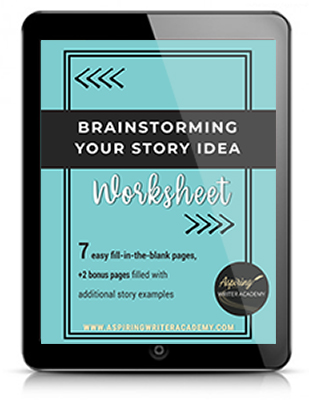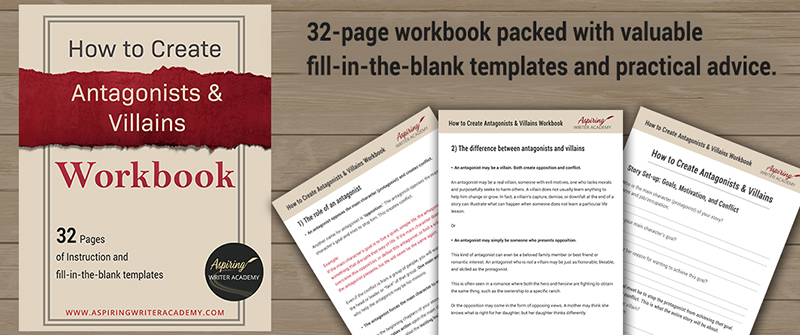10 Questions to Consider Before Starting a New Writing Group

Have you ever thought about starting your own writing group? The idea of connecting regularly with fellow writers can be incredibly appealing. Who better to share your writing journey with than those who share your passion? Collaborating with others can also provide valuable opportunities for constructive feedback that can significantly enhance your stories.
To help you get started and avoid potential pitfalls, consider these 10 Questions to Consider Before Starting a New Writing Group.
Let’s Get Started!
1) Who is this group for in terms of genre?
Is this going to be a group for writers of fiction or non-fiction? Can someone be a member if they write children’s books, poetry, memoirs, or magazine articles? Or is the group only for romance writers? Or exclusively for mystery writers?
If this is to be a large group or organization, it may be fine to invite writers of all different genres, but if it is to be a small private group it is best to narrow the focus to just ONE type of writing.
Going too broad can cause problems because it is difficult to present topics that appeal to everyone. Writers in small groups with a primary focus can learn more and advance their writing skills to higher levels much faster. In my experience, small groups can be more beneficial, valuable, and worthy of your time.
Not sure about your book genre? Check out these helpful posts:
2) What will be the primary focus?
What kind of a group is this? What is the group’s purpose? Will this be a critique group, promotional/marketing group, writing sprint group, or study group to learn the craft of writing? Or will it be a social group to discuss the challenges of writing?
You should also consider the group’s experience level. Is this group for beginners or more advanced or published writers? While a large group may invite writers of all levels, a small group should include writers of similar experience levels.
Mentorship is a blessing in its proper place, but it is wearisome for an author with high level skills to always need to teach the one newbie in the group who has nothing to offer anyone in return. This quickly becomes a one-sided teaching experience. Great benefit for the newbie, but it really isn’t helping the one with experience. Everyone should benefit from the group and walk away refreshed with new insights and ideas to advance their writing.
This is also a good time to talk about commitment. In larger groups some members may show up for a meeting here or there but if they do not show it is not a big deal. But in a smaller group, it is important that each member commits to meeting regularly and putting in the time and effort to critique other’s work or to do their best to encourage, support, and help the others in the group.
If one individual neglects their promotional responsibilities while the rest actively promotes on social media—especially within the same book collection or anthology—resentment will inevitably build toward that individual.
For critique groups: who is all in and producing pages each week and who is treating it more like a hobby, only writing when there is a sliver of time?
Small groups work much better when everyone is of the same mindset, commitment, and skill level. Actively discussing the expectations of the group helps avoid many pitfalls within the group before they occur.
3) What day and time will you meet? And how often?
When will your group meet? Will there be a set time each week or month?
Will you meet once a month or twice a month?
If you are starting a large group, the leadership in charge should make these decisions knowing they can’t please everyone. They must choose what they think will be best for the majority of the members.
For a smaller group, it is important to discuss the day, time, and frequency of the meetings with each member and try to make a decision that works for everyone. If there is a conflict that cannot be resolved, then someone may need to drop out of the group. Or perhaps rotate the meetings so that a member can attend half the time.
However, consistency is important, and if you change the meeting times too much to try to accommodate everyone, sometimes the group ends up not meeting at all. Critique groups need to meet regularly to gain feedback on their writing, especially if a writer has a contract and is under deadline. If the group cannot provide that feedback when needed, the author’s writing suffers and the benefit of having this group is severely compromised.
While a member of a small group may need to skip a meeting from time to time due to sickness or vacation or other obligations, the rest of the group should continue to meet and keep their commitment to one another.
4) Location: Where will you meet?
Some writing groups gather in a private meeting room at a library, church, restaurant, college campus, or hotel. This must be arranged by the leaders in charge who coordinate with the manager of the facility.
Small private groups can choose to meet at someone’s house or meet at a restaurant or any other place that works for them. Having the meeting in a private home can offer a quieter, more intimate atmosphere where writers can get the most work done. A small group can even rotate between each member’s home and choose to bring food or appetizers to share.
5) Private or Public?
Is this a closed group between friends or open to outsiders to join?
If this is a public group, how many people will the meeting room hold? How will you promote this group to gain new members? Will you have a website or a page on social media?
How large of a group will this be? Will you set a limit on the number of members?
If it is a small close-knit group, no one should be allowed to invite someone else into the group without a serious discussion with ALL the other members because it changes the whole dynamic. Having 3 out of 4 being ok with it isn’t good enough. It must be a unanimous decision or your group could implode.
An effective critique group should only have about four members. More than that makes it difficult to have time to critique everyone else’s pages and get your own writing done each week. Also, with more members, your meetings may run very late while you try to discuss each story. If you have fifteen people in your critique group and they can only submit 5 pages each meeting, it will take years for a serious writer to get feedback on a 400-page novel. And that just doesn’t work. Members of a small critique group may submit 2 or 3 whole chapters at a time.
A group with fewer members gives each person more time and attention to help them gain the skills to improve their work.
Again, it is wise to discuss the goals and expectations for the group. Sometimes, you must also ask—is this group truly beneficial or a waste of time?
If you are going to take the time and energy to start a writing group, be sure to make it worthy!
6) Should there be food and beverages?
Everyone loves having the food and drinks available, but who is in charge of bringing them? Will it cost your group extra money? Will everyone be able to afford to eat at a restaurant or buy food for each meeting?
Will some people feel like they have bring something significant because others just bring a bag of chips or cheese and crackers?
Who will set up and clean up the crumbs from having food at your meeting? Will the group need to buy paper plates, plastic utensils, and napkins?
More importantly, will having food at the meeting distract everyone from actually doing the work or discussing the critiques? Food leads to social interaction where many people keep conversations going longer than they should, leaving very little time for the actual meeting. Many groups who start out with food, later decide to do away with it to better focus on the writing.
So—will food be a distraction? If you do decide to have food, can someone be in charge of calling the actual meeting to attention?
7) Who is in charge?
There needs to be a meeting agenda and a strong leader to keep the meeting on track and on topic or it goes all over the place. Sometimes a lack of leadership at a meeting or trying to keep the meeting on topic is like trying to herd a thousand stray cats. Chaos ensues.
At the beginning of the meeting, the leader should announce the agenda and firmly speak out to deter others from changing the topic or wasting time. The leader may choose to ring a bell to draw everyone’s attention if needed.
If this is a small group, hosted at someone’s house, then perhaps the host should be the leader at that meeting or the group may vote to have someone else be the leader or make an agreement to keep each other accountable.
8) How will your group communicate?
Another question to consider before starting a new writing group is—how will the group share information?
Will your group communicate through text, email, or a private Facebook group page?
Who will be in charge of posting or announcing the meeting dates and times and meeting agenda?
Having a central location to obtain meeting information is essential to those with limited time and prevents mix-ups and misunderstandings.
9) Will there be any dues or fees?
Some groups require membership dues to cover the cost of a meeting room, napkins and utensils for food, and other expenses. If so, the group may need a bank account and appointed treasurer for accounting.
Smaller groups can decide to cover certain costs themselves, with each member voluntarily providing whatever is needed.
10) Before inviting friends, consider—how well do they play with others?
Beware of conflicting personalities within the group that could lead to trouble. Do the people in this group get along or is there a drama queen who exaggerates everything and pulls the focus toward themselves? Or is there someone who is too harsh with their comments or too critical of others’ work? Is there someone who is just plain too sensitive and takes everything as a personal attack? Is someone letting their jealousy of others get the best of him?
One bad egg in the group can make everyone miserable. Over time, little things can build and cause many groups to become divisive and implode. Make sure expectations for the group are laid out ahead of time and each member strives to encourage and support one another. If a member causes outbursts or division, you may need to decide in advance how to handle the situation, who should speak to this person, and if you should ask the individual to leave. Firm boundaries and expectations can help diminish conflict within the group and steer you away from unpleasant situations down the road.
After considering these 10 questions, we applaud you in your effort to start a new writing group. Many authors have gained life-long friends within the writing community. Many of them started out studying the craft of writing together and critiquing each other’s work and supporting and sharing with one another along the way. Many writers’ connections with other writers have opened golden opportunities for publishing and launching their careers.
Remember, you can do this! Go for the dream and do not let anything hold you back. Put your plan into action and create a writing group that will take your writing to the next level!
We hope you have enjoyed 10 Questions to Consider Before Starting a New Writing Group and that you have gained some valuable tips to gather together like-minded friends who will encourage and support one another as you each embark on this writing adventure.
If you have any questions or would like to leave a comment below, we would love to hear from you!
Other Blog Posts on Critique Groups.
If you like more help developing your story, you may wish to download our Free Brainstorming Your Story Idea Worksheet
Do you find it difficult to create compelling antagonists and villains for your stories? Do your villains feel cartoonish and unbelievable? Do they lack motivation or a specific game plan? Discover the secrets to crafting villains that will stick with your readers long after they finish your story, with our How to Create Antagonists & Villains Workbook.
This 32-page instructional workbook is packed with valuable fill-in-the-blank templates and practical advice to help you create memorable and effective antagonists and villains. Whether you're a seasoned writer or just starting out, this workbook will take your writing to the next level.
We Believe All Authors Can Aspire to Take Their Writing to the Next Level!
Our Goal for Aspiring Writer Academy is to help people learn how to write quality fiction, teach them to publish and promote their work, and to give them the necessary tools to pursue a writing career.

ENTER YOUR EMAIL BELOW
TO GET YOUR FREE
"Brainstorming Your Story Idea Worksheet"
7 easy fill-in-the-blank pages,
+ 2 bonus pages filled with additional story examples.
A valuable tool to develop story plots again and again.
Other Blog Posts You May Like
Fiction Writing: How to Find a Critique Partner/Group
How to Find a Writing Group: Tips for New Authors
Why We Started Aspiring Writer Academy: Our Story
50 Top Resource Books for Fiction Writers
3 Levels of Goal Setting for Fiction Writers
Fiction Writing: Office Supplies to Help You Prepare to Write Your Next Novel
Fiction Writing: 5 Key Differences Between a Novel and a Novella
7 Steps to Begin Writing a New Fictional Story
How to Research Information for a Historical Novel
The Pros and Cons of Writing Holiday Fiction (Collections & Anthologies)
Slingshot Week: How to Set New Goals for Writing in 2023
How to Write a Novel While Working Full Time
How to Find a Great Story Idea in 4 Easy Steps
20 Items to Bring to Your First Writer’s Conference
How to Write the Midpoint of Your Novel (and Avoid a ‘Saggy Middle’)
Who is an ‘Aspiring Writer?’ 3 Tips to Escalate Your Career No Matter What Level You Are At
Do You Dream of Being a Published Author? (How Bad Do You Want It?)
Write Your First Novel: How Do You Start?
The Ultimate List of Book Genres: 95+ Popular Genres & Subgenres
The Power of Understanding Book Genres for New Authors
Finding Your Genre: Tips for New Authors
How to Create S.M.A.R.T. Goals to Keep Your Writing on Track
How to Boost Your Productivity and Get Your Novel Written
Top 7 Books to Make You a Super-Productive Writer
How to Create a Deadline for Your Fictional Novel
A Beginner’s Guide to the Top 10 Genres for Popular Fiction
How to Write Your Very First Fiction Novel
How to Get More Done with a Weekly Writing Plan!
100 Essential Writing and Publishing Terms All Authors Should Know
What is NaNoWriMo? How This Fun Challenge Can Kickstart Your Novel

is a multi-published author, speaker, and writing coach. She writes sweet contemporary, inspirational, and historical romance and loves teaching aspiring writers how to write quality fiction. Read her inspiring story of how she published her first book and launched a successful writing career.






























